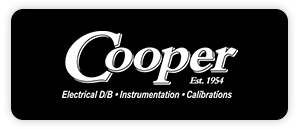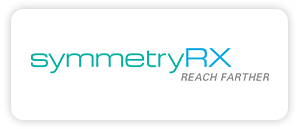Source: Dain Dulaney, Bishop, Dulaney, Joyner & Abner
“Do I Have to Pay Back the Convertible Note?!?!?!”
This final installment in my series, Critical Issues in Convertible Note Financing, is one that I believe to be the most important issue founders should consider when negotiating the terms of their convertible note:
What happens if the convertible note does not automatically convert before the due date is reached?
One of the key terms of the convertible note will be the length of time after which the convertible note will become due. After all, a convertible note is actually just a typical promissory note with provisions for automatic conversion into equity on meeting certain conditions. The date that the convertible note becomes due to be paid is referred to as the “Maturity Date.” If the convertible note does not meet any of the conditions to automatically convert into equity before Maturity Date, then the issue of what happens when the Maturity Date is reached must be addressed.
The reason I believe this is such an important issue is that I have seen the failure to properly address this issue cause the downfall of companies. On two occasions, I have seen a company make progress but not meet the requirements for the automatic conversion features of the convertible note to be invoked. This forced the company to dissolve or file bankruptcy because the investors demanded repayment of all principal and interest due under the note on the Maturity Date. Fortunately, a third company was able to raise enough money to pay back the convertible note investors on the Maturity Date (which it had anticipated as a backup plan in advance). I recommend all companies carefully consider this issue when they opt for convertible note financing. Below are important things to consider when considering a looming Maturity Date.
What are the ways to make sure getting to the Maturity Date does not kill my company?
Sell Equity Ownership (a Series Seed Preferred Round) Instead Of Using A Convertible Note.
Convertible notes were initially developed to help companies do what is called a “Bridge Round” between two funding rounds. This happened because companies did not want to run low on cash while actively negotiating with a new investor (because the new investor would use the lack of capital to squeeze better terms out of the company as it started to run out of cash). It only became fashionable to use convertible notes for the initial round of fundraising 5 or 6 years ago, mainly as a way to get around having to negotiate the valuation of the company at the time of the initial fundraise. Now that we have seen the potentially catastrophic effects on a company if the convertible note reaches the Maturity Date, I believe founders should strongly consider not using convertible notes for their initial round of fundraising unless they can see a clear path to the event that will meet the conditions for automatic conversion of the convertible note into equity or build in protections that address what happens on Maturity Date, as discussed below. Also, as investors have become more savvy about negotiating a valuation cap as part of the convertible note terms, that is also a move toward already discussing the current valuation of the company and the leap to just negotiating a valuation for an equity raise is not substantially different. As compared to a convertible note, the great news for founders about selling equity is that if the company does not grow as quickly as everyone anticipates, the company will not be on the hook for paying the investment back at some later time. Finally, having investors as equity owners clearly sets the stage for both the investors and founders being aligned in their desire to help the company to grow because the investor knows they will not be paid back their investment except through the success of the company!
Structure the Convertible Note so that it Automatically Converts on the Maturity Date.
If you are going to end up including a valuation cap (which I discussed in an earlier blog), I recommend inserting a provision that allows the convertible note to automatically convert on the Maturity Date into equity at the valuation cap. This is based on the theory that while the company may not be doing as well as everyone would like on the Maturity Date, it should be worth at least the same valuation as the valuation cap set when the convertible note was initially negotiated. I could even see an argument where it might be at a lower valuation then the valuation cap as a consequence for not hitting the automatic conversion events.
Carefully Consider The Term and Approval Rights to Convert on the Maturity Date.
- The standard term for a convertible note to reach the Maturity Date is typically two years. Just like every other provision of the convertible note, this can be changed. I caution against using a 1 year term (which I discussed in an earlier blog). For my clients, I have actually started trying to include at least a 3 year term, especially where it is the investors option to convert the note or require that the principal and interest be paid back on the Maturity Date. I have even seen convertible notes with much longer terms, like 5 years.
- If the investors will not agree to an automatic conversion on the Maturity Date or allow the founders to make the determination that it converts, make sure that it takes less than all of the investors to approve a conversion to equity on the Maturity Date (something like the investors holding 75% of the total amount invested). This is to prevent a situation where one small investor can hold the company hostage by not agreeing to the automatic conversion on the Maturity Date.
About Scale Finance
Scale Finance LLC (www.scalefinance.com) provides contract CFO services, Controller solutions, and support in raising capital, or executing M&A transactions, to entrepreneurial companies. The firm specializes in cost-effective financial reporting, budgeting & forecasting, implementing controls, complex modeling, business valuations, and other financial management, and provides strategic help for companies raising growth capital or considering M&A/recapitalization opportunities. Most of the firm’s clients are growing technology, healthcare, business services, consumer, and industrial companies at various stages of development from start-up to tens of millions in annual revenue. Scale Finance has multiple offices in the Carolinas including Charlotte, Raleigh/Durham, Greensboro, and Wilmington with a team of more than 45 professionals serving more than 130 companies throughout the region.







